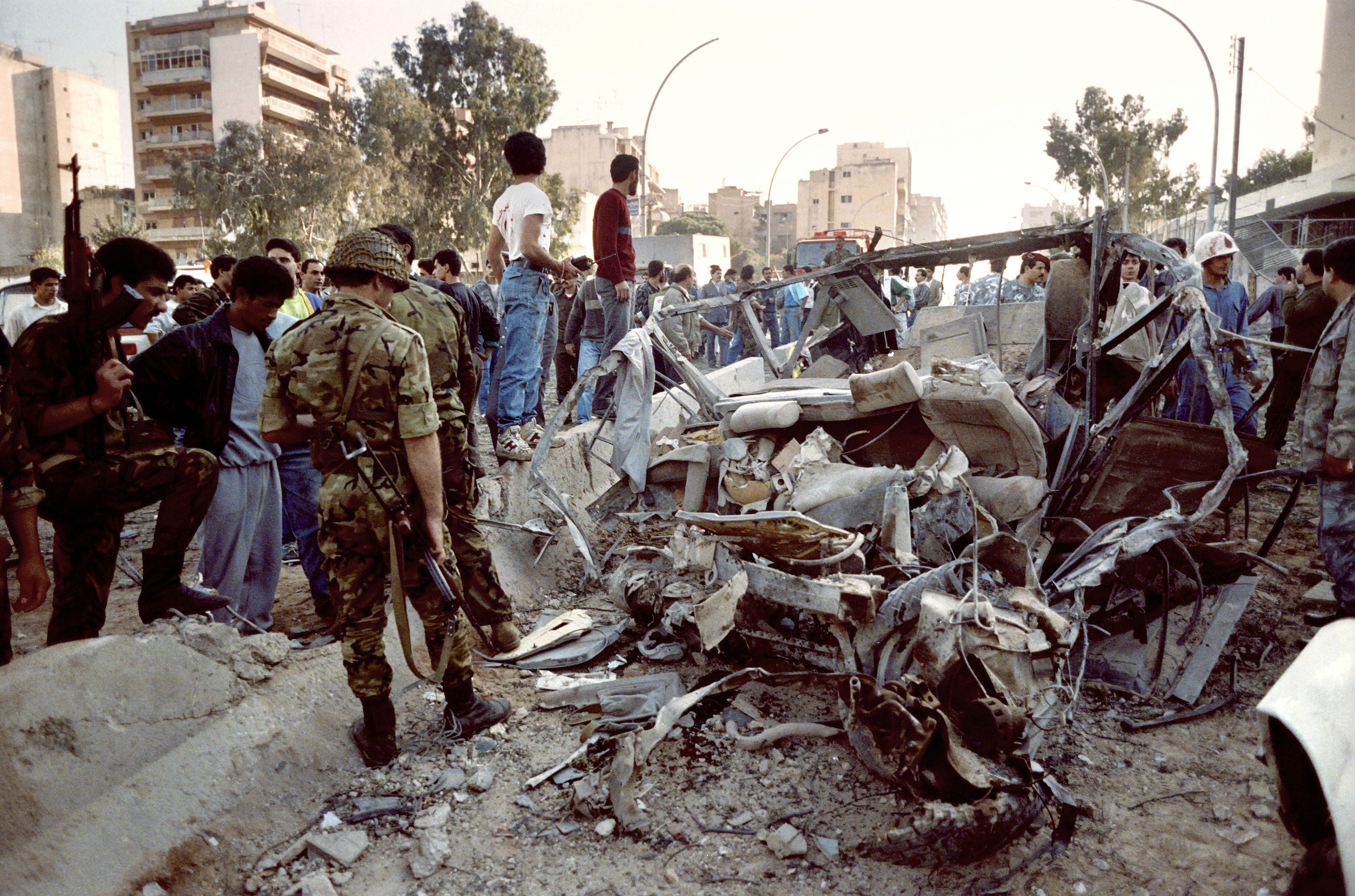The flat was filled with people prepared to risk shellfire to welcome a newcomer
It’s July 1989 and Robert Fisk is trying to set up home in Beirut – a city being bombarded by the Syrians, with no electricity and precious little water


Trying to set up a new home in west Beirut is a little like trying to complete a crossword in a crashing airliner. Anyone who thinks the parallel is exaggerated should purchase a fridge, washing machine and television set in the city and try to wire them on to a stolen power line during a barrage of incoming shells. When we decided to arrange a house-warming lunch party, several of the guests said they would be delighted to come if the house was not under fire at the time.
When it came to washing the floor after the party, the city’s electrical power supply had already been cut, the pumps had stopped working and the taps emitted just a cup of water. Not that it mattered.
At 9am, the Syrian guns down the road began to fire into east Beirut and the return shells delivered by General Aoun’s army literally rocked our home. This is not a news agency cliché. Standing by the door, I saw the floor move backwards and forwards with the impact of the explosions. When I sat down, the chair swayed beneath me.
But let us start with the fridge. The local dealer in Madame Curie Street told us that it was a bargain at $550 (£395). His men would call by to instal it. They did, two days later, along with the washing machine and the television set. Unfortunately, there was no power in west Beirut that morning, so the fridge could not be tested. When we hooked it into the stolen power line, it would not function.
When the city’s electricity supply returned, the indicator lights glowed both green for normal function and red for danger. This was a fairly accurate symbol of Lebanon: both lights were correct. The fridge hummed with life, but failed to chill the bottles inside it. Then the cable burned – from the plug all the way down the wire outside the house to the illicit power box near the street.
The fridge manual came in Italian, the television set included a set of instructions in Japanese, but the washing machine was simple to understand. Despite the assurances of the salesman, it needed an electrical transformer and a surge controller, the latter instrument necessitated by Beirut’s wild fluctuations in current which wreck sophisticated electrical equipment within a few days. But the artillery battles delayed our purchase of a controller and the Muslim feast of Al Adha meant that the shops would be closed for another five days.
The shooting will stop. It will all be over, Inshallah. Lebanon will get better. The foreigners will all come back. It will be just like the old days
An empty neighbour’s apartment eventually provided an alternative fridge – a great American beast from the Fifties which could ride the power surges – and the fruit cocktail and ceviche (the product of the only Bolivian correspondent in Lebanon) were duly prepared and chilled for the party. But would the guests come? For much of the previous night, heavy artillery shells had crashed around the house. On the stroke of 1pm, the Lebanese staff of the Associated Press turned up, brandishing flowers, to admire the broken windows and the shell holes in the street outside. Farouk Nassar, its veteran Beirut reporter, took his seat on the balcony, a whisky in one hand, a cigar in the other, discreetly mentioning that he was very hungry. So there could be normal life in Lebanon.
The Lebanese staff of Reuters turned up, and so did the landlord and his nieces, a pilot from the national airline MEA, and a host of drivers upon whose skill and courage we often trust our lives. For two glorious hours, the flat was filled with people prepared to risk shellfire to welcome a newcomer.
But by evening they had gone and the bombardment started again. It lit up the sky, sending us scurrying to an inside corridor where we sat on a mattress by candlelight, sipped the remains of the fruit cocktail and, just for the comfort of hearing friendly voices, listened to the BBC World Service sports report as the walls and floor of our new home vibrated around us to thunderous explosions.
Even the emergency power line failed. Yet half way through the night of shellfire, my landlord knocked on the door. “Don’t worry, Mr Robert. I have a new wire for the power line. Tomorrow I will connect it. My sister will wash your clothes. The shooting will stop. It will all be over, Inshallah. Lebanon will get better. The foreigners will all come back. It will be just like the old days.”
The burst of explosions had no effect on this lunatic optimism. My landlord grinned through the door at us, having long ago discovered how to make a home in Lebanon.



Join our commenting forum
Join thought-provoking conversations, follow other Independent readers and see their replies
Comments